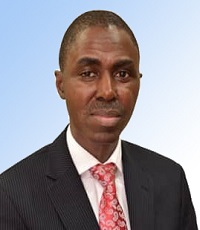
467 Financial Institutions Liquidated Till Date – NDIC
The Nigeria Deposit Insurance Corporation (NDIC) yesterday disclosed that it has successfully liquidated 467 financial institutions till date, that is, of both depositors and creditors. The insured financial institutions, according to the Corporation, comprise of 49 Deposit Money Banks (DMBs), 367 Microfinance Banks (MFBs) and 51 Primary Mortgage Banks (PMBs) as at the end of December 2021.
The Managing Director and Chief Executive Officer (CEO) of the NDIC, Mr. Bello Hassan, made this known in Abuja, during the opening ceremony of the International Association of Deposit Insurers (IADI), Africa Regional Committee Technical Assistance Workshop hosted by the NDIC. The workshop has as its theme: “Normality in Turbulent Periods: The Stabilising Role of Deposit Insurance
Hassan said: Presently, economies globally are stressed, some are still recovering from the impact of COVID-19 pandemic and the spill-over effects of the Russia-Ukraine war. As we are all aware, the fabric of the global financial stability is constantly being threatened by one form of crisis or the other.
He listed some of these threats to include the Russia-Ukraine war, cyber threats, slow growth, increasing inflation and tighter global financial conditions which may all exacerbate pre-existing vulnerabilities.
According to Hassan, the NDIC, as one of the resolution authorities in the country, has adopted different resolution mechanisms in resolving the failure of distressed deposit-taking financial institutions.
The Minister of Finance, Budget and National Planning, Mrs Zainab Ahmed, in her keynote address, explained that despite the challenges, under the Ministry of Finance, the government has put in place and implemented very difficult but necessary reforms, as well as engaged international partners to help the country navigate the extremely challenging economic environment.
Read Also: Bank Fraud, Forgeries Amounted To N120.79bn In 2020 – NDIC
She further explained that due to the collaboration between the NDIC, Central Bank of Nigeria (CBN), and other agencies, the country’s Gross Domestic Product rose to 3.54 per cent year-on-year in the second quarter of 2022.
“The financial services sector had the highest contribution of 22 per cent to this pool. It is kudos to the financial services. The GDP growth marks the seventh consecutive quarter of GDP growth, since the recession recorded in Q3 2020. The Nigerian economy has so far shown signs of resilience in the face of economic headwinds like the conflict between Russia and Ukraine, which affected the global economy,” she said.
In his remarks, the Governor of the CBN, Godwin Emefiele, said: “The secret to the sustained financial stability in Nigeria lies in the smooth coordination among these safety-net participants. It is worthy of note that the CBN in partnership with other FSRCC members, is implementing the report submitted by Oliver Wyman and Systemic Policy Partnership consultants which is targeted at reviewing Nigeria’s framework for managing the stability of the financial system in line with global best practice. The NDIC has being playing a key role in this endeavour.”
The Chairman of the Board of the NDIC, Mrs. Ronke Sokefun, in her goodwill message, noted that while the forum provides an opportunity to share views and experiences, such must be maintained to ensure readiness for timely and prompt intervention to engender financial system stability.
The IADI-ARC Chairman, Mr Mohamud Mohamud, urged African countries to be at the fore-front of embracing financial technology. Mohamud re-emphasised that deposit insurance was a key component of ensuring financial system stability. Mr David Walker, the Secretary-General of IADI, called on deposit insurers to focus on emerging risks and make their cooperative window active.
